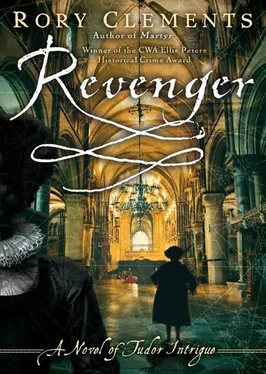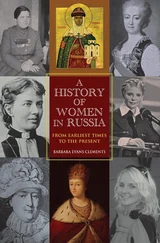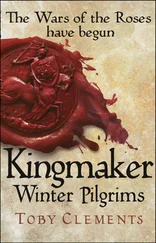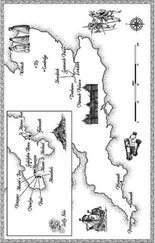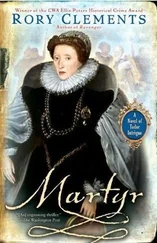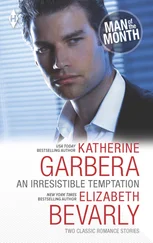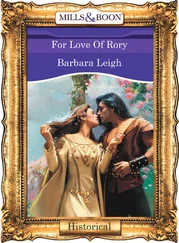The arc of the ball’s swing hovered at its zenith. Essex stared down at this diminutive woman and Shakespeare rolled sideways, out of reach of Essex’s blood-dripping flail.
Bess looked at the Earl with disdain, then stepped forward, past the body of Sir Toby Le Neve, and roughly grabbed the forearm of her young ward.
“Come with me, you foolish girl,” she commanded, dragging Arbella to her feet with astonishing strength. Ignoring the sharp steel that surrounded her on all sides, she turned to the man in the scarlet velvet suit of clothes and gazed on him with stern majesty. “Do you think it wise to pull a sword on your mistress, Mr. Morley? Look outside the church door, if you will.”
Morley, Essex, and everyone else within the church turned to look through the gaping doorway. The churchyard was full of men.
Bess smacked the man called Morley across the cheek. “Return to your classroom, sir. I will have words with you later.” She nodded to two men who had followed her into the church, and they each grasped one of Morley’s arms and dragged him out. She then pulled Arbella with an angry tug of her arm and marched her from the church. Shakespeare rose and followed her.
Men of every size and shape thronged the churchyard: working men with hoes, hammers, hayforks, picks, trowels, and shovels, but also with longbows, crossbows, halberds, axes, and rust-bitten arquebuses. Perhaps five hundred in all, maybe more. They looked like an army ready to do battle and not give an inch.
Some were mounted on farm horses and oxen; some had arrows laid across fully drawn bowstaves, ready to strike a man dead within the blink of an eye. They wore the leather jerkins and aprons of builders and carpenters, stonemasons and farmhands. They were a ragtag bunch, but they were a fearsome sight-and they outnumbered Essex’s men twenty-five to one.
Bess smiled with satisfaction at the sight of all her builders and estate workers, hastily assembled by her retainers this morning. She knew they were all loyal, would kill and die for her, for she had brought prosperity to them and their families with her great building works and with her well-husbanded farmlands and industries. She turned back to Essex, who had followed her to the door. “Well, my lord,” she asked, “do you have any argument with me now?”
Essex scowled as he gazed upon the unexpected army that confronted him and upon the slight figure of the woman who dared defy him.
He dropped the flail, drew his sword, and seemed about to lunge at her, but suddenly two long-handled weapons-an old pike and a dungfork-came across his path, forming a cross that barred his way. An archer stepped forward, close to Bess’s side, and pulled his bowstring taut, the arrow pointing directly at the Earl’s heart.
Penelope Rich touched her brother’s arm. “Come, Robert,” she said softly. “Do not die here at the hands of peasants. Live-and prepare for another day.”
In the confusion, no one noticed the minister, Oswald Finningley, waddling into the vestry, his skirts clutched about his knees for ease of movement. With a shaking hand, he opened a little cupboard and took out a pint-flagon of communion wine, which he uncorked and drank in one draft.

I T WAS OVER. THERE WOULD BE NO PITCHED BATTLE between men-at-arms and common men, no civil war on a muddy field in Derbyshire beneath lead-gray skies. Where Essex saw only a mist of blood, his elder sister saw things with sun-bright clarity. She knew that Bess would say nothing of this and nor would John Shakespeare. She understood the workings of their minds. She left the church with her head held high. With fortune, there would be another day for the Devereux clan. She would consult Dr. Forman.
On the porch, John Shakespeare stood face-to-face with Essex. “My lord, you will disband and hasten from this place, for if you do not, I vow that a royal militia will be raised against you that will hunt you and your band down to all your deaths.”
Essex ignored him. He looked down at the flail where it lay in the mud, its round head covered in the thick, coagulating blood of Sir Toby Le Neve. He seemed to study it, as if he would find some answers there, in its unforgiving iron. He shook his head slightly, perhaps suddenly realizing what he had done. “Toby…”
Shakespeare gazed on the strange, poignant tableau with a mixture of feelings. Le Neve had saved his life, had deliberately put himself in harm’s way and had taken the lethal blow intended for his foe. It was a difficult thing to comprehend, that a man guilty of such a heinous crime should sacrifice his own life for a near stranger; perhaps there was a conscience in that heart, a need to find redemption. “He died in honor, my lord. Take him and bury him with military honors.”
If Essex had words, he did not utter them. He looked at Shakespeare for a moment without expression, then strode away, across the face of Bess’s army, followed in dribs and drabs by his supporters. Four of them lifted up the body of Sir Toby Le Neve and bore him on their shoulders; they would take him away from here and bury him in their own way.
Their horses were tethered in the trees at the edge of the churchyard. Essex threw himself into the saddle of his black charger and kicked it into motion with unnecessary ferocity, galloping off southward in the direction of Hardwick Hall, his disorganized contingent trailing in his wake.
Shakespeare watched them go until only Lady Rich was left.
“What will you do now, Mr. Shakespeare?”
“That is not for me to decide.”
“The Cecil crookback has snared you.”
Shakespeare was silent.
“But you can do nothing, can you? You cannot touch us without condemning your own brother. And I know you, Mr. Shakespeare-I know that you would never do that. Nor can Bess say a thing. If one word of this ever reached the Queen’s ears, she would bar Arbella from the succession-writ in law-and would likely demand her head.” Penelope touched his arm with something akin to affection. “You have been grievously in error this day, sir. You have handed the throne of England to a malodorous Scotch garboil-or perchance a simpering Spaniard. You have seen the chart. The Queen will die within days and the Cecils will arrange everything to their own gain and England’s loss.”
Shakespeare said nothing. The matter of the succession was not his to decide; nor was the fate of Essex and his sister and the rest. His task was the defense of the realm and the life of the monarch.
Penelope laughed lightly. “McGunn was right to distrust you. Your silence tells me everything. You have sold your soul.”
Shakespeare still said nothing. Essex and Lady Rich had thought to play him like a fish, knowing that if he did not swim with them he would end up fried on their platter.
“Well, Mr. Shakespeare, it seems you have chosen your path. And it is a path of burning coals. You have made powerful enemies this day. My mother has the towering rage of the Tudors, and she will want your blood. Do you think your choice will have been worth it? Does the crookback pay you well?”
At last he spoke, his voice clipped and expressionless. “I have been loyal to my sovereign.”
Penelope laughed. “Today’s sovereign. What of tomorrow’s? What will become of you when the sovereign dies and the crookback’s star wanes and falls?”
“As you say, my lady, I have chosen my path. I will live with it.”
“Or die…”
Shakespeare began to walk away, behind Bess’s great artisan army, now proceeding at a steady pace toward Hardwick Hall. Bess was with them, marching her deflated granddaughter home.
Читать дальше
